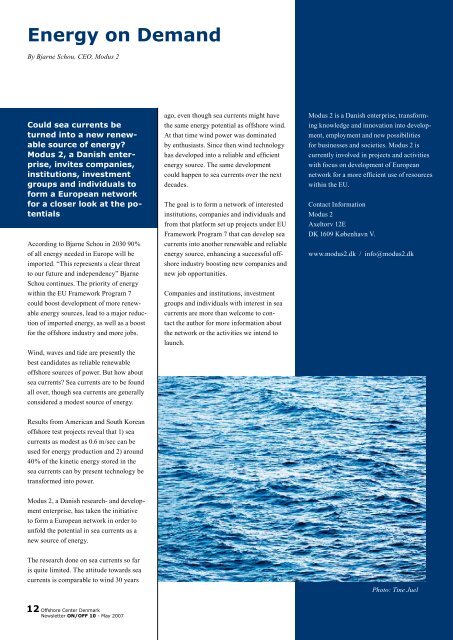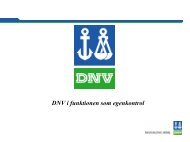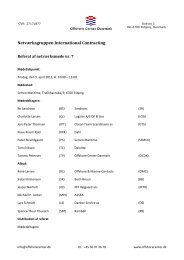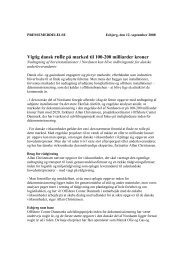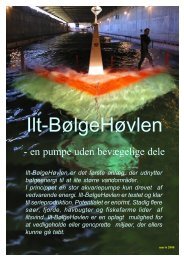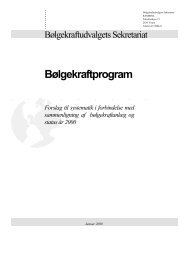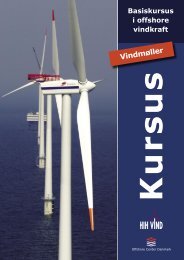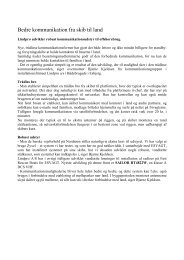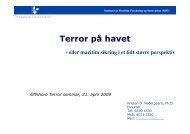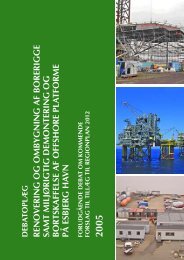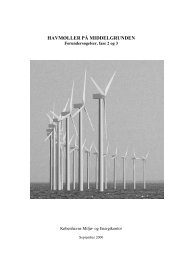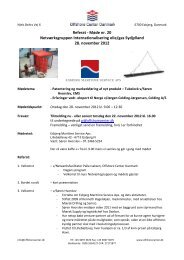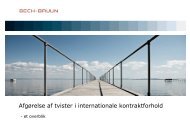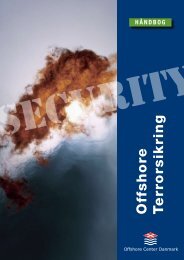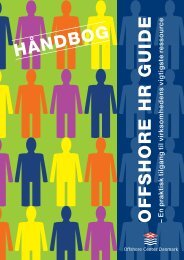You also want an ePaper? Increase the reach of your titles
YUMPU automatically turns print PDFs into web optimized ePapers that Google loves.
Energy on Demand<br />
By Bjarne Schou, CEO, Modus 2<br />
Could sea currents be<br />
turned into a new renewable<br />
source of energy?<br />
Modus 2, a Danish enterprise,<br />
invites companies,<br />
institutions, investment<br />
groups and individuals to<br />
form a European network<br />
for a closer look at the potentials<br />
According to Bjarne Schou in 2030 90%<br />
of all energy needed in Europe will be<br />
imported. “This represents a clear threat<br />
to our future and independency” Bjarne<br />
Schou continues. The priority of energy<br />
within the EU Framework Program 7<br />
could boost development of more renewable<br />
energy sources, lead to a major reduction<br />
of imported energy, as well as a boost<br />
for the offshore industry and more jobs.<br />
Wind, waves and tide are presently the<br />
best candidates as reliable renewable<br />
offshore sources of power. But how about<br />
sea currents? Sea currents are to be found<br />
all over, though sea currents are generally<br />
considered a modest source of energy.<br />
Results from American and South Korean<br />
offshore test projects reveal that 1) sea<br />
currents as modest as 0.6 m/sec can be<br />
used for energy production and 2) around<br />
40% of the kinetic energy stored in the<br />
sea currents can by present technology be<br />
transformed into power.<br />
Modus 2, a Danish research- and development<br />
enterprise, has taken the initiative<br />
to form a European network in order to<br />
unfold the potential in sea currents as a<br />
new source of energy.<br />
The research done on sea currents so far<br />
is quite limited. The attitude towards sea<br />
currents is comparable to wind 30 years<br />
12 <strong>Offshore</strong> <strong>Center</strong> Denmark<br />
Newsletter <strong>ON</strong>/<strong>OFF</strong> 10 - May 2007<br />
ago, even though sea currents might have<br />
the same energy potential as offshore wind.<br />
At that time wind power was dominated<br />
by enthusiasts. Since then wind technology<br />
has developed into a reliable and efficient<br />
energy source. The same development<br />
could happen to sea currents over the next<br />
decades.<br />
The goal is to form a network of interested<br />
institutions, companies and individuals and<br />
from that platform set up projects under EU<br />
Framework Program 7 that can develop sea<br />
currents into another renewable and reliable<br />
energy source, enhancing a successful offshore<br />
industry boosting new companies and<br />
new job opportunities.<br />
Companies and institutions, investment<br />
groups and individuals with interest in sea<br />
currents are more than welcome to contact<br />
the author for more information about<br />
the network or the activities we intend to<br />
launch.<br />
Modus 2 is a Danish enterprise, transforming<br />
knowledge and innovation into development,<br />
employment and new possibilities<br />
for businesses and societies. Modus 2 is<br />
currently involved in projects and activities<br />
with focus on development of European<br />
network for a more efficient use of resources<br />
within the EU.<br />
Contact Information<br />
Modus 2<br />
Axeltorv 12E<br />
DK 1609 København V.<br />
www.modus2.dk / info@modus2.dk<br />
Photo: Tine Juel


